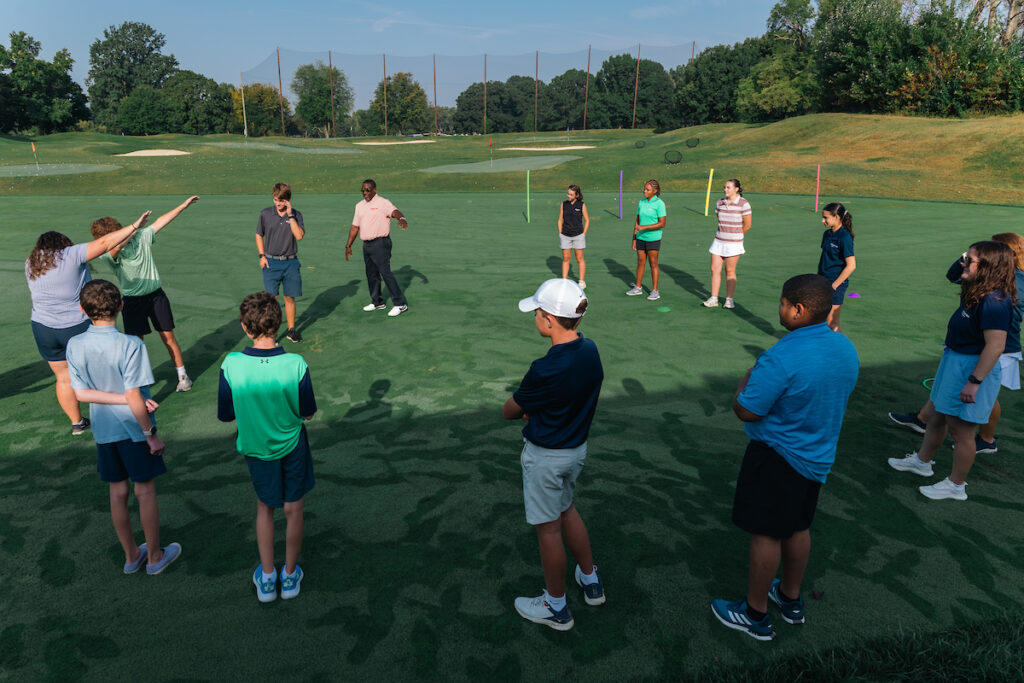By Kristin Westberg – Senior Director, Training & Evaluation
At First Tee, we’re committed to helping all young people build character, confidence and life skills through golf. That includes participants with diverse learning needs — some of whom may have an Individualized Education Program (IEP) or 504 Plan.
These plans are designed to help students succeed in school, but they can also provide valuable insights for our coaches and volunteers. With participants back in school, now is a perfect time to discuss with your chapter how it can meet your child’s needs. By working closely with families, we can create a more inclusive, supportive and empowering experience for every participant.

Why parent partnerships matter
Parents and caregivers are the best source of knowledge about their child’s strengths, challenges and what helps them thrive. When we build trust and open lines of communication, we can better understand how to support each participant in a way that’s respectful, personalized and effective.
What to share during the intake process
You don’t need to provide chapters with the full IEP or 504 Plan — just the essentials that will help them provide a great experience. Here are a few questions to consider:
- Does your child have an IEP or 504 Plan?
- Are there specific accommodations or strategies that work well for them?
- Are there any triggers or challenges we should be aware of?
- What are your child’s strengths and interests?
- What helps your child feel safe, confident and included?
This information can be summarized into a simple “Participant Snapshot” for coaches to reference, helping them tailor instruction and interactions in a meaningful way.
Program adaptations that make a big impact
Here are a few adaptations our chapters have made that can help participants with IEPs or 504 Plans thrive:
- Visual schedules: They may use boards or laminated sheets to show the day’s activities in order.
- Instructional cue cards: They may provide visual prompts for golf skills or life skills as reminders.
- Color-coded zones: They often use cones or other items to mark areas and support transitions.
- Behavior supports: They may offer “break cards” or “feelings charts” to help participants communicate their needs.
These tools support not only students with learning differences but also help all participants feel more confident and engaged.
The Power of Listening and Learning
By listening to families, being flexible and showing a willingness to adapt and learn, First Tee Chapters can create spaces where all kids feel valued and supported.

